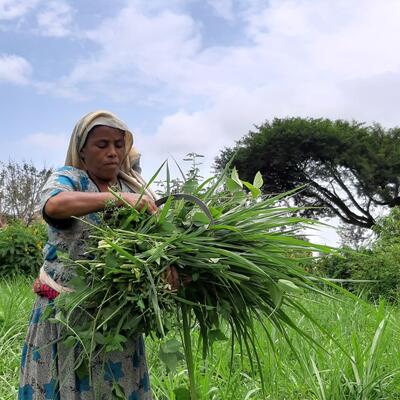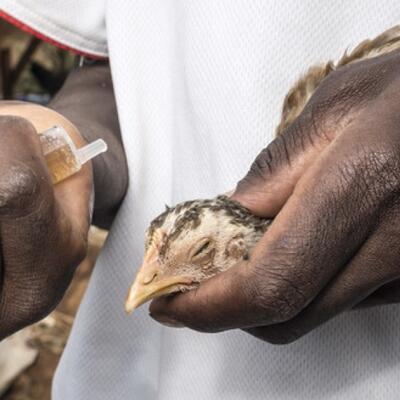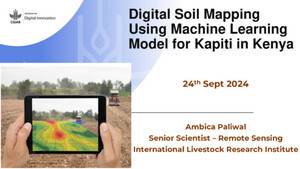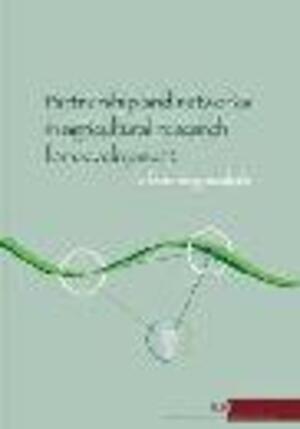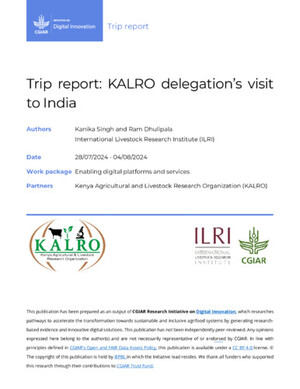
Ethiopia learning alliance to support sustainable agricultural intensification
The International Livestock Research Institute (ILRI) recently launched a National Learning Alliance (NLA) for the Sustainable Agricultural Intensification Research Learning Alliance (SAIRLA) project in Ethiopia.
The SAIRLA project is a five-year (2015–2020) initiative funded by the UK Department of International Development that is seeking to generate new evidence and design tools to enable governments, investors and other key actors to deliver more effective policies and investments in sustainable agricultural intensification (SAI) that strengthen the capacity of poor farmers, especially women and youth, to access and benefit from agricultural intensification.
National learning alliances will be launched in the six SAIRLA project countries (Ethiopia, Ghana, Burkina Faso, Zambia, Malawi and Tanzania) with the aim of co-generating, sharing and facilitating use of knowledge between researchers and decision makers and other stakeholders interested in enabling socially and environmentally sustainable agricultural intensification.
The Ethiopia NLA was launched in a two-day workshop (27–28 March 2017) at ILRI in Addis Ababa that also introduced the four SAIRLA projects in Ethiopia. Participants discussed the NLA’s terms of reference, identified partners and challenges for each partner and selected the project’s steering committee members.
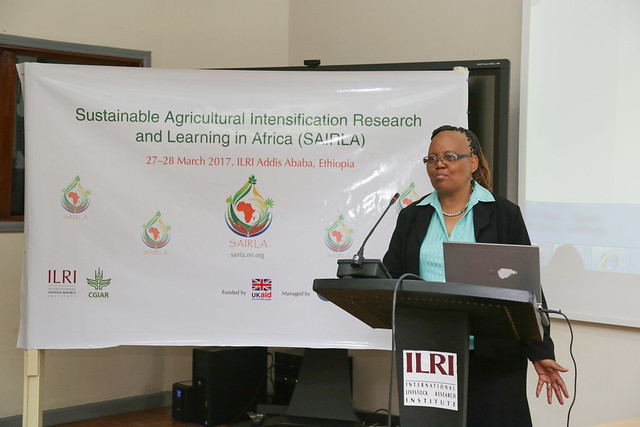
Siboniso Moyo speaking at the launch of the SAIRLA–National Learning Alliance in Ethiopia (photo credit: ILRI/Apollo Habtamu).
Siboniso Moyo, the ILRI director general’s representative in Ethiopia, said the ILRI campus in Addis Ababa, which also hosts 11 other CGIAR centres working in the country, was an ideal location to host and manage the Ethiopia NLA.
She said that agricultural productivity in Africa needs to increase considerably to meet the food demands of rising populations in many countries in the continent. But this growth needs to ensure effective management of the natural resource base and the challenge of climate change. One way of ensuring this, she said, was by combining improved technologies, enabling policies and using organizational and institutional arrangements so support ongoing research in crops, livestock, trees and natural resources management.
She added that delivering equitable sustainable agricultural intensification in Africa will require engaging diverse stakeholders in finding solutions and ensuring commitment and capacity to implement them. Multi-stakeholder engagement and learning processes such as those provided by the SAIRLA project through the learning alliance will support these efforts.
Richard Lamboll, a socio-economist working with SAIRLA said the project is focusing on how women, youth and smallholders in Africa can participate in and benefit from SAI. The project is working in four multi-country projects In Ethiopia that are led by the World Agroforestry Centre (ICRAF), the International Crops Research Institute for the Semi-Arid Tropics (ICRISAT), Bioversity International and the Environment and Climate Research Center (ECRC)/EDRI.
The Ethiopia projects will focus on:
- Research and learning for sustainable intensification of smallholder livestock value chains—led by Stockholm Environment Institute, working in collaboration with ILRI, Institute de l’Environnement et de Recherches Agricoles, Environment and Climate Research Centre at the Ethiopian Development Research Institute, and Sokoine University of Agriculture (SUA).
- Bringing evidence to bear on negotiating ecosystem services and livelihood trade-offs in sustainable agricultural intensification. This work will be led by ICRAF in collaboration with the Department of Geography and Environmental Studies at Addis Ababa University; Department of Soil Science at SUA; Environmental Management Unit of the Tanzania Ministry of Agriculture, Livestock and Fisheries; and Zambia Agricultural Research Institute.
- Smallholder risk management solutions led by the Oxford Policy Management in collaboration with ICRISAT, Bunda Colloge and Wollo University, Busara Center for Behavioural Economics, and the Amhara Regional Agricultural Research Institute.
- Combining lean data and crowdsourcing for household-specific targeting of agricultural advisory services-led by Bioversity International working closely with the Lutheran World Relief, Mekelle University, and the Naliendele Agricultural Research Institute.
At the workshop, participants, who included representatives from the Ethiopian government, non-government organizations, research institutes and SAIRLA, discussed, among other issues, the main challenges and beneficiaries of the Ethiopia projects and the expected practice and policy changes resulting from their interventions.
Participants also defined the vision and mission of the national learning alliance as follows.
Vision
Decision makers create an enabling environment for development and implementation of SAI strategies that would strengthen the capacity of smallholder farmers especially women and youth. Smallholder farmers employ and benefit from sustainable agricultural intensification practices.
Mission
The NLA will create a learning platform for decision makers, development partners and smallholder farmers that enables them to have access to evidence and to engage with decision support tools on sustainable agricultural intensification that is equitable, sensitive to trade-offs management and improvises service provisions.
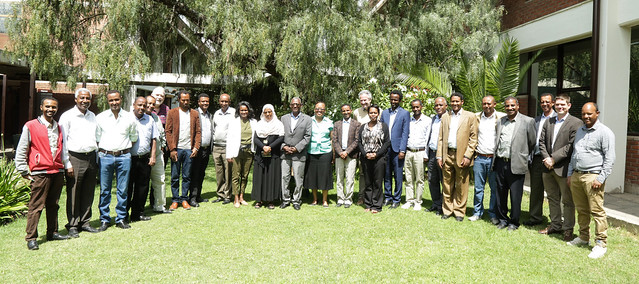
SAIRLA-NLA workshop participants (photo credit: ILRI/Apollo Habtamu).
Participants of the workshop also identified the boundary partner for the alliance— the individuals, groups, or organizations with whom the NLA program interacts directly and with whom the program can anticipate opportunities for influence. The structure of the NLA was also set up and will include a steering committee, a general assembly and thematic working groups. The steering committee is made up of eight members with the following roles:
- Ministry of Agriculture and Natural Resources–Agricultural extension director general (chair)
- Ethiopia Institute of Agricultural Research (vice chair)
- Ministry of Environment, Forest and Climate Change (member)
- SAIRLA research projects representative (rotating) (member)
- Send a Cow (member)
- Media (member)
- The United States Agency for International Development (donor representative)–(member)
- ILRI (NLA facilitator)–(facilitation and secretarial)
The Africa RISING project in the Ethiopian highlands is a member of the NLA and will be closely working with, and supporting, the alliance. In its second phase, Africa RISING will work with the SAIRLA-NLA national innovation platform rather than establish a new one.
See workshop-related news, full workshop report and photos.








